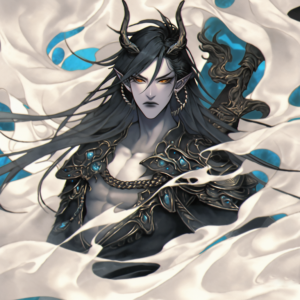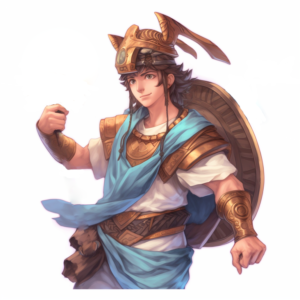Hera, a prominent figure in Greek mythology, is the queen of the gods and the goddess of marriage and family. She is one of the twelve Olympian gods and goddesses, born to Cronus and Rhea, and is the sister and wife of Zeus, the king of the gods. Hera’s birth and upbringing are associated with her divine status and her influential role in the divine hierarchy.
Hera is often depicted as a formidable and powerful deity, fiercely protective of her domain of marriage and family. Her portrayal in mythology highlights both her loyalty and devotion as a wife and her vengeful nature when her husband’s infidelity is perceived. Hera’s complex character showcases the range of emotions and challenges often associated with the institution of marriage.
Appearance
Hera was renowned for her divine beauty, often described as radiant and regal. She possessed an otherworldly charm that captivated both gods and mortals. As the queen of the gods, Hera was often depicted wearing a crown or diadem to symbolize her regal status. The crown was adorned with jewels and motifs befitting her divine stature.
In some depictions, Hera wore a veil or headdress, which was a symbol of her role as the goddess of marriage. She also wore a flowing peplum, a type of draped garment, befitting her status as a queen.
Powers & Abilities
As the goddess of marriage, Hera possesses powers and abilities related to the institution of matrimony. She is believed to bless marriages, protect married couples, and ensure the fidelity and harmony within unions. Hera’s powers also extend to childbirth and the protection of women in childbirth, emphasizing her role in family and maternal affairs.
family
Hera is the daughter of Cronus and Rhea and the sister and wife of Zeus, making her one of the central figures in the Olympian family. She is considered the mother of Ares, the god of war, and Hephaestus, the god of craftsmanship.
SYMBOLS
Several symbols are associated with Hera, representing her domains and attributes. The peacock, known for its beauty and regal display, is a primary symbol of Hera, symbolizing her majesty and sovereignty. The cow, as a symbol of fertility and domesticity, is also associated with Hera. Additionally, the pomegranate, representing fertility and abundance, is often associated with her.
Worship
Worship of Hera in ancient Greece involved ceremonies and rituals dedicated to honoring her as the goddess of marriage and family.
Hera had several temples and sanctuaries dedicated to her throughout Greece. One of the most famous was the Heraion of Samos, an impressive temple complex built in her honor on the island of Samos. The Temple of Hera at Olympia, one of the Seven Wonders of the Ancient World, was also a notable place of worship.
Various festivals and religious celebrations were held in honor of Hera. The most well-known festival dedicated to her was the Heraia, which took place every four years at Olympia. It featured athletic competitions for women, reflecting Hera’s association with marriage and the protection of women.
Worshippers would make offerings and sacrifices to honor Hera and seek her blessings. These offerings could include fruits, flowers, milk, honey, and animals such as cows, sheep, or goats. The act of sacrificing demonstrated devotion and sought her favor in various aspects of life, particularly in matters related to marriage and family.
The sanctuary of the Argive Heraion was one of the most ancient and significant places of worship for Hera. It was believed to be one of the oldest temples in Greece.
Facts about Hera
- Hera is widely known as the queen of the gods and holds a position of great importance among the Olympian deities. As the sister and wife of Zeus, the king of the gods, she is regarded as the foremost goddess of Mount Olympus.
- Hera’s mythology is marked by her frequent displays of jealousy and wrath, particularly in response to Zeus’s numerous infidelities. These characteristics serve as reminders of her role as the protector of marriage and her determination to punish those who violate its sanctity.
- While Hera is known as the goddess of marriage, she is also closely associated with motherhood and childbirth. She is often depicted as a loving and nurturing mother, protecting and caring for her divine children.
- Hera is known for her pursuit of vengeance against Zeus’s numerous lovers and their offspring. Her wrath often falls upon both mortals and immortals who threaten her marriage or defy her authority.
- Connection to Heroes: Hera is sometimes involved in the stories of Greek heroes, particularly those with significant ties to her lineage or who gain her favor. This includes heroes such as Heracles (Hercules) and Jason, who embark on legendary quests.






